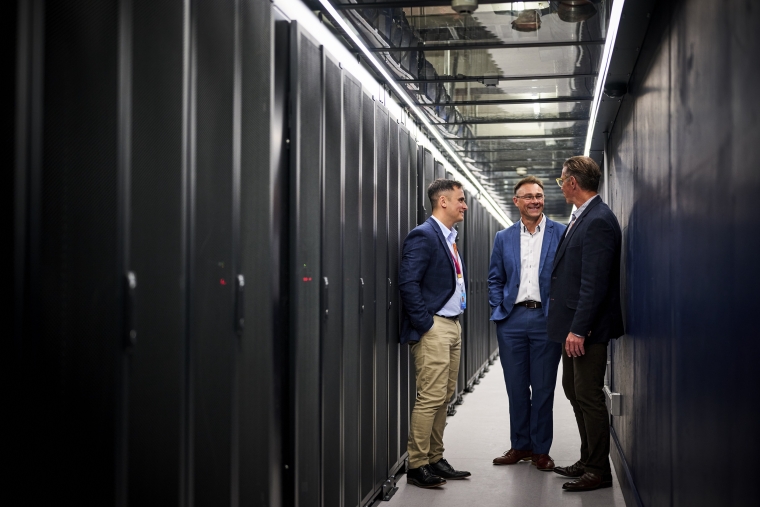
Network infrastructure builder Chorus is expanding its EdgeCentre data centres in exchanges business with the addition of 23 racks in its Mt Eden facility, with the help of technology partner Vertiv.
The Mt Eden exchange used to house large copper telco gear, which has now been replaced by smaller and more sustainable fibre network equipment. This has freed up space.
Chorus colocation product manager Mohammed Hadi said the Mt Eden exchange was the company's pilot build in 2015, and every rack in the facility has since sold out.
Vertiv has now implemented a 23 rack hot aisle containment system, with 50 to 250 kilowatt power capacity.
Unlike Chorus now completed Ultra-Fast Fibre network which is built with investment from the government's Crown Infrastructure Partners, the EdgeCentre data centre business is unregulated.
Spokesperson Steve Pettigrew told interest.co.nz that the EdgeCentre business is the fastest growing in the Chorus colocation portfolio, ranking third in revenue behind exchange space and wireless colocation.
Chorus has almost 600 existing telephone exchanges around the country, and is looking at providing EdgeCentre through retail service providers (RSPs) in regional New Zealand.
Customers can choose from full and half racks in the data centres, or single rack units, Chorus said. A consumption-based model means customers only pay for the power they use.
Currently, Chorus EdgeCentre is available in Auckland, Tauranga, Wellington and Christchurch.
"We're exploring the addition of a second Auckland location, informed by our ongoing industry consultation," Pettigrew said.
With the relatively low power capacities, the EdgeCentre data centres are not designed to compete with major cloud providers such as Amazon Web Services and Microsoft Azure.
"Our value lies in not competing with hyperscalers or public cloud vendors which are building multi-megawatt facilities," Pettigrew explained.
"Instead, we see an opportunity to partner with, and complement, their services by offering their end customers a regional, local presence, thereby providing a unique and valuable service in the market," he added.
Pettigrew said that as Chorus continues to consolidate or remove legacy copper services, the efficiency of fibre allows the infrastructure builder to repurpose space for modular data centres across the country.
Extending EdgeCentre into the regions to offer customers there a data centre within reach aligns with the hybrid cloud trend, as per Amazon's Outpost family of products, which provide a public cloud hosted in Chorus' secure facilities.
7 Comments
Does having a data centre 'around the corner', instead of 'the other side of the city' really matter?
That's a great question to ask an EdgeCentre customer. Stand by.
Scale of facility has cost advantages. On the other hand colo customers like being local for operational convenience. Around the corner or other side of town doesn’t really make any difference technically for colo (though location can be far more sensitive for hyperscaler Availability Zones)
Seems like a great idea to me .
The problem with trying to support local smmall providers, is they tend to disappear eventually . if the govt could provide a framework ( i guess regulation) , whereby they must provide a path for your data email/web addresses to go too in the event of their failure, that would be a big boost . .
Can't think of anyone outside of CDN for streaming services that might benefit from co-location in mulitple regional centres to be a few ms closer to their clients. And CDN has been doing pretty well without that level of location too.
What's the use-case here?
Disaster recovery I'm told.
DR requirement is typically 100km separation, not other side of same town

We welcome your comments below. If you are not already registered, please register to comment
Remember we welcome robust, respectful and insightful debate. We don't welcome abusive or defamatory comments and will de-register those repeatedly making such comments. Our current comment policy is here.